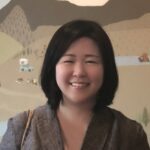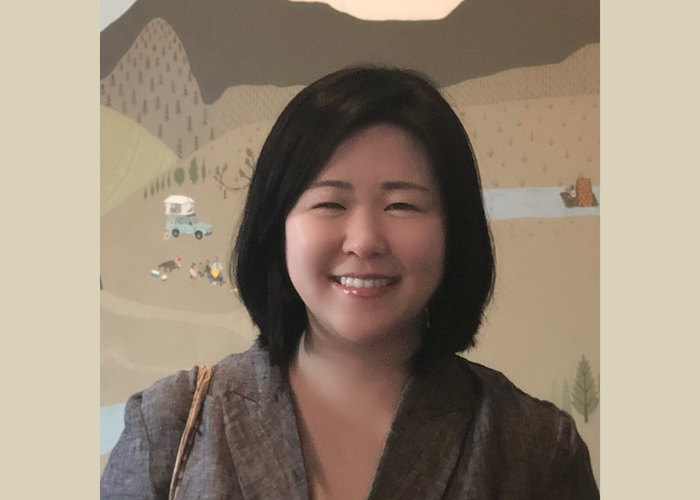We’re taking time to get to know the members of the GSA’s Early Career Scientist Committees. Join us to learn more about our 2021 early career scientist advocates.

Jiae Lee
Multimedia Subcommittee
University of Washington and University of California, Irvine
Postdoc Scholar
Research Interest
For more than 15 years, flies have been my science partner. With flies, I was trained as a geneticist, developmental biologist, and cell biologist. During my Master’s, I delved into a single sugar molecule, O-GlcNAc, that modifies proteins to modulate their structure, interactions, location, and function. To profile the proteins modified by O-GlcNAc, I used proteomic approaches to investigate how they are changed by immune challenges. For my PhD studies, I worked in neurodevelopment, specifically looking at the cell-autonomous factors that control the shape of the dendrite. I carried out a large-scale forward genetic screen to identify the mutations that would develop into an abnormal branching pattern of the dendrites, and examined the cytoskeletal dynamics underlying dendritic development.
As a scientist, I think of biology research as the art of finding patterns within a process and understanding how those processes interact with each other. During my early training, I was initially fascinated with isolated processes, whether it was a specific molecule or a specific type of a cell. This interest then developed into a bigger picture of the entire organism, which led to my current work as a postdoctoral researcher, where I study cancer development and cancer-host communication. Currently, I research how cancers develop and how they interact with the rest of the body. I established a tumor metastasis model in the Drosophila intestine that allows us to learn how the tumor cells come out from the original epithelial tissue in vivo, and discovered they produce vesicles into the bloodstream to communicate with other host organs. My other project approaches a specific type of tumor that breaks down host tissue and alters metabolism, questioning how those tumors evade the wasting signal that is made by themselves. I will further explore inter-organ communications between the tumors and the host tissue, hoping that this knowledge will help us target the cancers in humans effectively while protecting the host tissues during therapy.
As a PhD-trained scientist, you have many career options. What career paths interest you the most?
I have a special place in my heart for undergraduate education because of my own experiences during college, which provided me with the mentorship and motivation to pursue my research. My first research experience was during the first summer break of my freshman year when I started working in a microbiology lab. During this time, in addition to learning molecular lab bench skills, I was able to experience the pure joy and fun of working in a lab. Then, my passion for biology grew even more while taking developmental biology in my sophomore year. I was fascinated by the idea of an unorganized mass of cells turning into functionally specified structures by the orchestration of signals at the right time and the right place. Learning the breadth of developmental biology—from the classic organizer experiments of embryology to the cutting-edge techniques in modern stem cell biology—and the precise logic behind these experiments became the solid base for my scientific career. Through my membership in scientific communities, including GSA, my participation in conferences by giving talks and presenting posters, and receiving excellence awards, I’ve proudly grown into a biologist.
As a teacher, I try to infuse the concepts I learned in my undergraduate years, in the hopes my students will also gain the same enlightenment and excitement I did. Having undergraduate students as co-authors on my papers makes me extra proud. I envision myself gaining a position as a teaching faculty at a state-level university or a primarily undergraduate institute and for that, I am also being trained in education research. I believe my expertise and experience can help students grow into independent biologists.
In addition to your research, how else do you want to advance the scientific enterprise?
Academia, like the rest of our society, is full of injustice. According to recent national reports released by National Academies of Sciences, Engineering, and Medicine (NASEM) and institutional climate surveys, academia is second only to the military for sexual harassment and assault rates. I have witnessed too many people from marginalized groups get pushed out of academia. To take action in advancing fairness and safety in the workplace environment, I serve as a steward of the Biochemistry department for the postdoc union at the University of Washington. This allows me to be the center of communication for our department, which is the largest body of postdocs in the School of Medicine. I have held meetings for my department and encouraged participation in union voting and town hall meetings to ensure the members’ voices are heard. I am very proud to be a part of constructing our first contract with the university, which provides a solid system to protect the postdocs against harassment or unfairness. Finally, the science can be done.
As an Asian woman scientist, I know there are many of us out there, but it is really difficult to find a person who looks like me and shares a similar cultural background in leadership roles. We need more representation in the field, so increasing visibility is something I could do to advance diversity in the scientific enterprise. I am challenging myself to proactively engage in the scientific community such as the GSA Early Career Leadership Program (ECLP), and volunteer for outreach activities such as participating in open labs with the Society for Advancement of Chicanos/Hispanics and Native Americans in Science (SACNAS).
As a leader within the Genetics Society of America, what do you hope to accomplish?
As a GSA leader, I look forward to networking with my fellow scientists! Isolation has been a real issue for me ever since I started my current position at the University of California, Irvine as a visiting scholar. To add to that, the pandemic made this isolation worse. Becoming part of a community of so many fabulous scientists is a gift. Entering the ECLP felt like coming from a calm rural countryside to a bustling city center. As a co-chair of the multimedia subcommittee, I look forward to working with our incredibly talented subcommittee members and meeting the authors of the recent publications in GSA journals that we profile on the podcast we produce, Genetics in Your Life. I also hope to successfully organize the multilingual seminar series in the Korean language, which is set to be held next year.
Through my activity in the ECLP, I anticipate developing professional leadership skills like time management, task management, effectively organizing a meeting, and promoting team efforts. I have experienced burnout before, so when I saw there was a career development workshop entirely dedicated to ‘overcommitment’, I felt such great relief that I am at the right place. I appreciate that ECLP provides such great opportunities and support to enhance the potential of each member and I look forward to growing and learning a lot in my time with the ECLP.
Previous Leadership Experience
Steward of Biochemistry for Postdoc union UAW4121 at University of Washington, 2019–present
Secretary: Korean Bioscience and Medical Scientists (KBMS) at University of Washington, 2011–2015
Vice President: Korean Graduate Student Association (KGSA) at University of Washington, 2011–2012
Contact Jiae Lee on Twitter or via email: agarose@uw.edu































